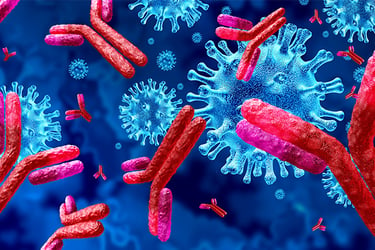eStoreRx™
Online Supplement Dispensary
eStoreRx™ is an easy direct-to-patient ordering & fulfilment program for lifelong wellness.
For over 40 years, Biotics Research Corporation has revolutionized the nutritional supplement industry by utilizing “The Best of Science and Nature”. Combining nature’s principles with scientific ingenuity, our products magnify the nutritional
eStoreRx™ is an easy direct-to-patient ordering & fulfilment program for lifelong wellness.
Biotics Research is proud to expand our commitment to education with the Wellness Unfiltered Pro Podcast. Each episode delves into key health topics and the clinical applications of our premier products. Through candid, insightful conversations, our team offers practical guidance to keep you informed and empowered as a healthcare professional.
February 19 2026
The journal Sleep Medicine Reviews recently published the results of a systematic review and meta-analysis examining melatonin supplementation among c...
 The results of a prospective cohort trial following children between the ages of 6 months and 2 years were recently published in Pediatrics, the journal of the American Academy of Pediatrics. This study followed nearly 600 children and reported a negative association between vaccine-induced antibody levels and antibiotic use. Among children receiving regular childhood vaccines, specifically diphtheria-tetanus-acellular pertussis (DTaP), inactivated polio (IPV), Haemophilus influenzae type b (Hib), and pneumococcal conjugate (PCV) vaccines, not only were vaccine-induced antibody levels lower among children given antibiotics, but a cumulative effect was observed.
The results of a prospective cohort trial following children between the ages of 6 months and 2 years were recently published in Pediatrics, the journal of the American Academy of Pediatrics. This study followed nearly 600 children and reported a negative association between vaccine-induced antibody levels and antibiotic use. Among children receiving regular childhood vaccines, specifically diphtheria-tetanus-acellular pertussis (DTaP), inactivated polio (IPV), Haemophilus influenzae type b (Hib), and pneumococcal conjugate (PCV) vaccines, not only were vaccine-induced antibody levels lower among children given antibiotics, but a cumulative effect was observed.
Each course of antibiotics was associated with a greater decrease in protective antibody levels; pre-booster antibody levels to DTaP antigens were significantly reduced by 5.8%, Hib by 6.8%, IPV by 11.3%, and PCV by 10.4%, with even greater post-booster reductions in antibody levels, as much as 21.3% lower with each course received. There was also a higher frequency of vaccine-induced antibody levels below a protective threshold among children who had received antibiotics, with broad-spectrum and more frequent dosing/duration all associated with negative effects. While there were some limitations to this study, such as its small size and inability to report data longitudinally, it is the first of its kind, i.e., the first human study to report a negative effect of antibiotics on vaccine-induced antibody levels. Animal studies suggest this may be because of disruption of the gut microbiome, hopefully prompting an analysis of the microbiome in future studies.
Submit this form and you'll receive our latest news and updates.
*These statements have not been evaluated by the Food and Drug Administration. This product has not intended to diagnose, treat, cure, or prevent any disease.
© 2025 Biotics Research Corporation - All Rights Reserved
Submit your comment